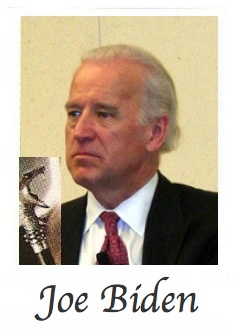On that day (May 20th), the Vietnam-era law’s 60-day deadline for terminating unauthorized hostilities appeared to pass. But the White House argued that the activities of United States military forces in Libya do not amount to full-blown “hostilities” at the level necessary to involve the section of the War Powers Resolution that imposes the deadline.
... Two senior administration lawyers contended that American forces have not been in “hostilities” at least since April 7, when NATO took over leadership in maintaining a no-flight zone in Libya, and the United States took up what is mainly a supporting role — providing surveillance and refueling for allied warplanes — although unmanned drones operated by the United States periodically fire missiles as well.
They argued that United States forces are at little risk in the operation because there are no American troops on the ground and Libyan forces are unable to exchange meaningful fire with American forces. They said that there was little risk of the military mission escalating, because it is constrained by the United Nations Security Council resolution that authorized use of air power to defend civilians.
... On Wednesday, the Speaker of the House, John Boehner, Republican of Ohio... demanded a legal explanation by Friday....
Ten members of Congress — led by Rep. Dennis Kucinich, Democrat of Ohio, and Rep. Walter Jones, Republican of North Carolina — filed a lawsuit on Wednesday asking a judge to order Mr. Obama to stop the air war....
The administration had earlier argued that Mr. Obama could initiate the intervention in Libya on his own authority as commander-in-chief because it was not a “war” in the constitutional sense. It also released a memorandum by the Justice Department’s Office of Legal Counsel agreeing that he could do so unilaterally because he anticipated that its nature, scope, and duration would be limited.
Since then, the conflict in Libya has dragged on longer than expected, and the goal of the NATO allies has all but openly shifted from merely defending civilians to forcing the Libyan dictator, Col. Muammar Qaddafi, from power. But Mr. Koh and Mr. Bauer said that while regime change in Libya may be a diplomatic goal, the military mission is separate, and remains limited to protecting civilians....
Still, such previous cases typically involved peacekeeping missions in which the United States had been invited to take part, and there were only infrequent outbreaks of violence, like those in Lebanon, Somalia and Bosnia. Libya, by contrast, is an offensive mission involving sustained bombardment of a government’s forces.




Comments
To repeat: Ape + Shit.
by quinn esq on Wed, 06/15/2011 - 7:32pm
what a fuckin' weasel..sustained fighting...active exchange
Oh well, I missed those modifiers in the War Powers Act, silly me.
by jollyroger on Wed, 06/15/2011 - 10:12pm
Now, now, Quinn. Haven't time to find a polar bear in a field of lupines, but Foggy Rasmussen says it's all good. We aren't targeting individuals, and we'll buy off Russia, China and India with some of the US's spare billions and some IMF money. And so forth.
And at least Obama has his Hoh.
And will the brains in the jars be labeled "Abby Something"?
by we are stardust on Wed, 06/15/2011 - 7:35pm
Y'know, I think it's easier to find Polar Bears midst the Flowers than it is to find sense in that latest White House document.
See here? This is a polar bear amidst the Northern flowers.
And see here? Another one!
But the White House claiming the US is not at war with Libya?
Nope. Can't see that.
by quinn esq on Wed, 06/15/2011 - 8:03pm
Take a gander at the new FBI manual I posted. It will arguably have the Most Chilling Effects on protests and protestors. Which, I guess, is part of the point. 9Is the second flower firewwed? That's the color it is in Colroraddy; maybe a bit taller...
by we are stardust on Wed, 06/15/2011 - 8:55pm
This reminds me of an indecent in group therapy a number of years ago. Where one of the members went to dinner and a movie with a lady friend he has know for some time. The therapist said, "Oh so you went on a date." he replied that it was NOT a DATE. The therapist said "WHAT ?" He said it's not a date because he said it wasn't a date.
The looks on everyone's faces, especially the therapist's....was priceless.
by cmaukonen on Wed, 06/15/2011 - 7:56pm
Well.... can't say as we're bringing any flowers. ;-)
by quinn esq on Wed, 06/15/2011 - 8:04pm
'Indecent therapy' is a new one one me; ya might consider another kind, IMO. You're gettin' robbed, unless.... ;o)
by we are stardust on Wed, 06/15/2011 - 8:52pm
Sorta puts your line the other night about winning being "7 presidents in a row" in a new light, no?
I'm gonna go make sure the cheerleaders are ok.
by Saladin on Wed, 06/15/2011 - 10:16pm
by quinn esq on Wed, 06/15/2011 - 10:28pm
Only difference is Americans wanted a war when the Great White War President and Decider started one, then two wars, neither of which he finished, and in which Americans are still getting killed. Now they want a Jobs President, not another War President.
Anyway the Republicans in Congress won't openly support Obama with NATO against Gadaffi, back a jobs program, or anything else that Obama tries to do. They also won't be visiting Gaddafi in his tent like McCain did a few years ago however, and you won't see them leading anti-war marches.
by NCD on Thu, 06/16/2011 - 12:31pm
From The News Hour panelists last night:
"JAMIN RASKIN: Others have filed reports -- many have filed reports in compliance with it, but they say that it's not pursuant to the War Powers Act, but it's consistent with the War Powers Resolution.
And I noticed that the Obama letter also uses the language about consistency with the War Powers Resolution. But what's interesting to me is that the president today didn't cast doubt on the constitutionality of the War Powers Resolution. He's doing whatever he can to avoid a head-on collusion with Congress.
He's simply saying that the current conflict doesn't rise to the level of hostilities within the meaning of the War Powers Resolution. And that argument appears to have been worked out by Harold Koh, who is a key lawyer in managing this war effort.
JEFFREY BROWN: Yes, Charlie, so step in there. How much went into the behind-the-scenes to try to construct the right sort of language to fit into this long-running debate that the professor is talking about?
CHARLIE SAVAGE: Well, it's something of a black box, but as best as I can tell, there has been weeks of deliberations.
We know that one theory that was played with for a while was whether they should stop using armed drones after May 20. There would then be no direct strikes by U.S. forces and they could make -- that might bolster the case that this is not hostilities.
Ultimately, the White House decided not to go that route, to leave the mission unchanged, and simply to say that what you're seeing is not hostilities as we interpret it.
Oh, those little words that try to thread needles...and often do. Here's the video and the transcript; they conclude that it will all die down after this face-saving theater since it's a non-partisan issue: 'We want our guys to be able to do the same shit'.
by we are stardust on Thu, 06/16/2011 - 10:20am
I'm sure there's all sorts of fabulous legal maneuvering here, and all the technocrats will get worked up about all the possible implications. But on the straight goods ticket, being Mr Straight Talk, from a Nobel Peace Prize winner, Obama is eroding his standing with stunts like this.
It's corrosive.
by quinn esq on Thu, 06/16/2011 - 10:49am
And corrosive to his standing on the FBI stuff above. (I left a message there.)
by we are stardust on Thu, 06/16/2011 - 1:16pm
hmm. careful there darling. Pacifism is the new terrorism.
Because being against war is the same thing as declaring war on America.
by Cho on Thu, 06/16/2011 - 1:52pm
You read the FBI manual things above, dahlink? This country is getting scary-biscuits for anyone not towing the line, I swear. Ya think this shit might have a dampening effect on activism? The worst part is they're focusing so much on the Good Guys; the DoJ campaing against the best whistleblowers, too. Oh, yeah; and the folks growing and selling medical marijuana in sixteen states. Frig.
by we are stardust on Thu, 06/16/2011 - 2:01pm
I am really sick of this.
It makes no sense but I know I would be screaming my bloody head off if w were in charge right now.
I mean are we fighting Libyans over there so we do not have to fight them over here?
Are we fighting Iraqis over there so we do not have to fight them over here?
Are we fighting.....oh who cares?
WE MUST GET OUT OF THE BUSINESS OF WAR!
by Richard Day on Thu, 06/16/2011 - 1:44pm
I miss you Q
I was just happy that I did show up on your blog three and a half years ago.
hahahahahha
I look sometimes; to catch the 'hits'. hahahahahah
I miss you.
the end
by Richard Day on Sun, 10/12/2014 - 1:57am